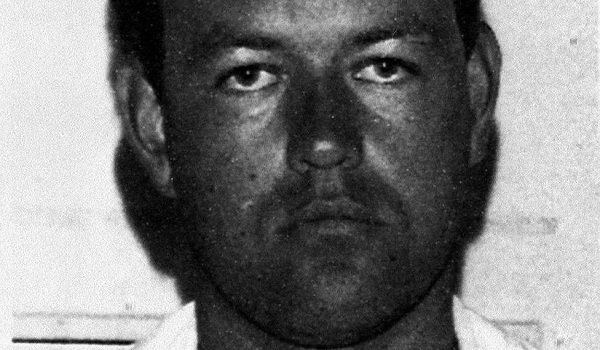PSNI ‘committed’ to bringing German backpacker’s murderers to justice
Detectives have vowed to continue their “relentless” 32-year investigation to bring the murderers of teenage German backpacker Inga Maria Hauser to justice.
It follows yesterday’s (July 8) decision by the Northern Ireland Public Prosecution Service (PPS) not to charge two individuals reported in connection with the death of Ms Hauser in April 1988.
The two suspects – a 60-year-old man and a 57-year-old woman – were reported to the PPS by the Police Service of Northern Ireland (PSNI) “in respect of the circumstances surrounding Ms Hauser’s disappearance and death after she arrived in Northern Ireland as part of a trip across Europe”.
The first suspect was reported in connection with Ms Hauser’s murder. The second suspect was reported for withholding information in relation to the murder from police.
The PPS said: “The PSNI conducted an extensive and detailed investigation which resulted in the submission of a file to the PPS in June 2019. All the evidence and information on this file was carefully considered by a team of senior prosecutors with the assistance of advice from independent senior counsel. It was concluded that the evidence in respect of both suspects did not provide a reasonable prospect of conviction for any offence.”
However, the senior detective in charge of the murder inquiry has said they will continue to investigate to try to bring the 18-year-old’s murderers to justice.
PSNI Detective Chief Superintendent Raymond Murray has made a renewed appeal to the public, in particular the local community in North Antrim, as well as people who may have seen her travelling in England, from London northwards and in Scotland, before she embarked on the Stranraer to Larne ferry on April 6, 1988.
Ms Hauser went missing after arriving in Larne on the ferry from Scotland. Her body was discovered in a remote part of Ballypatrick Forest on the outskirts of Ballycastle two weeks later. The PSNI believes she died shortly after arriving in Northern Ireland and that she was subjected to a vicious and ruthless assault.
Det Chief Supt Murray said: “Our thoughts are with Inga Maria’s family today as we know the PPS decision not to prosecute is another difficult milestone in the search for justice for their loved one. This is difficult news for Inga Maria’s family and also for the detectives who have spent many years trying to bring those responsible before the courts. However, this decision does not signify the end of the inquiry for police.
“We realise that the PPS gave very careful consideration to the file of evidence and we are grateful for the chance we had to present the case to the PPS and Senior Counsel. Indeed we have had a further in-depth meeting with the prosecution team at which we received the benefit of their thoughts on the case and the evidence to date. This is extremely useful for me and my team going forward as we continue to investigate Inga Maria’s murder and we will now assess what is the best way to proceed.
“The police have been committed to finding Inga Maria’s killer for over 30 years and while not yet meeting the evidential threshold we have made significant progress.”
Ms Hauser’s death remains one of the region’s most high-profile unsolved murders, and the PSNI investigation led to one of the largest DNA screenings ever undertaken in the UK.
Det Chief Supt Murray added: “This has been a huge and complex investigation and has included a long-term forensic effort to identify the man whose DNA was recovered from the crime scene and understand how it fits into the case. This has included a mass screening exercise of around 1,800 samples taken face-to-face, extensive work on two occasions with the national database to try and trace the DNA through potential family members of the crime scene material donor, and an international request for other countries to check their databases also.
“Over the years we have watched developments in science and explored them to see if they can benefit this case. We will continue to look at every reasonable opportunity to do this.
“Our commitment to bringing Inga Maria’s murderers to justice has been relentless. Over the 30 years we have spoken to hundreds of potential witnesses, used cutting-edge science and made targeted media appeals in Northern Ireland and Scotland to push the enquiry forward.
“We have taken 2,551 statements, written 662 reports, conducted 292 questionnaires, conducted over 400 house-to-house inquiries, conducted 29 interviews, processed 7,400 documents and consulted with specialists in fields from behavourialism to DNA science.
“Inga Maria’s family needs to know what happened to her. Her parents both died not knowing who killed their daughter and her sister remains heartbroken.”
PPS Deputy Director of Public Prosecutions Michael Agnew said: “The murder of Inga Maria Hauser causes enduring distress and pain over 32 years later. We in the PPS acknowledge the deep disappointment felt today by the family and friends who loved Inga Maria and still miss her.
“The file received by the PPS contained the product of extensive PSNI investigations and was given the most careful consideration by a team of highly experienced prosecutors. The ‘Test for Prosecution’ was applied to this evidence, in line with our Code for Prosecutors.
“The standard of proof required in a successful criminal prosecution is high. The PPS can only prosecute a case that is assessed as having a reasonable prospect of conviction. In this case, our conclusion was that the available evidence was insufficient to meet this standard and therefore the Test for Prosecution was not met.”
The PPS said the evidential difficulties contributing to the decision that the Test for Prosecution was not met in the case of the first suspect included:
- The absence of evidence to link the suspect to the victim after she disembarked the ferry at Larne Port on April 6, 1988;
- The absence of evidence to link the suspect to the location at which Ms Hauser’s body was found;
- The recovery of DNA evidence from the crime scene, believed to be closely connected to the commission of the offence, that did not match the suspect; and
- A lack of clarity, arising from conflicting expert evidence, in relation to the approximate date of death, which undermined the case against the suspect.
“In relation to the second suspect, the evidence was insufficient to establish that she possessed and withheld information that would have been of material assistance to the police investigation,” the PPS added.
Mr Agnew said: “We have offered reassurance to the family of Inga Maria that this decision was taken only after a most careful and thorough consideration of all available evidence.”
He said the reasons for the decision had been outlined to the victim’s family, adding: “The prosecution team today met with Inga Maria’s sister Friederike via video conference, alongside police, during which we outlined in detail the reasons for the decision not to prosecute. This rationale was also provided in writing. We thank Friederike for taking the time to meet with us.
“Should Inga Maria’s family wish to meet with us again in future, we are fully committed to doing so and will seek to answer any further questions that they may have.”







